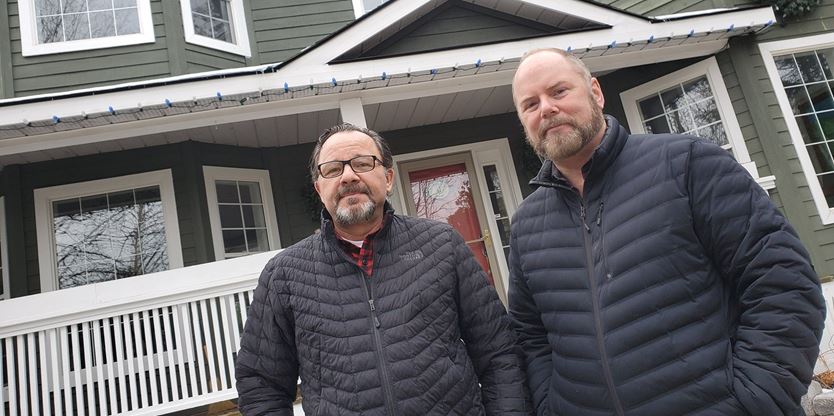Guy Laporte and Craig Ashton are owners of the Craigleith Manor Bed and Breakfast.
For more than five years, they’ve aimed to make it a popular destination for tourists.
“We’re ranked as one of the top B&Bs in Canada,” Laporte said. “This makes this B&B a really busy place. It’s been absolutely fabulous for the last five-and-a-half years, until COVID smacked us.”

They closed their doors from March until July but when they reopened, they saw sales drop by 40 per cent. While August, September and October were on the upswing, rising COVID-19 cases have once again led to a downturn in business.
“We’re back now to no guests at all and it’s primarily because of what’s going on in Toronto,” Laporte said.

It’s one of the reasons, Laporte and Ashton are thankful for the federal government’s Regional Relief and Recovery Fund, which provides businesses with loans to keep them afloat.
“Like any small business that has no revenue from sales, you still have ongoing expenses,” Laporte said. “There’s no doubt, we would be in serious trouble. This is a small business that went into debt further so that we could stay alive. We’re just happy to have the lifeline.”
Gillian Fairley is general manager of the Centre for Business and Economic Development in Collingwood, which administers the program.
She said her office has helped more than 29 businesses secure much-needed funding.
“It was critical,” she said. “When they first launched the program, we were inundated with applications. It was very much needed, it’s still needed now.”
While some of the programs have specific requirements, Fairley said her office is able to help corporations and main street businesses.
“It’s really meant to address the gaps in funding for businesses who can’t access other programs,” she said.
Black Bellows Brewing Company opened its brewery and restaurant in the heart of downtown Collingwood in January, just a few months before the pandemic.
“The pandemic put a huge financial strain on the company when it hit in March,” said Bryn Davies, owner of Black Bellows. “The (funding) was instrumental in getting the company back on its feet, hiring back staff that we were forced to lay off when the pandemic hit, and pivoting the business in new directions.”
Laporte said they are a small boutique operation, who can have up to six guests. He is hopeful that ski season is somewhat normal but said the funding will ““allow us to stay here, to keep this business open, even with smaller numbers of guests, until the economy comes back up.”
Story behind the story: Many businesses in the tourist industry have struggled since the pandemic and we wanted to find out how they’ve been able to stay afloat and whether relief funding has helped.
